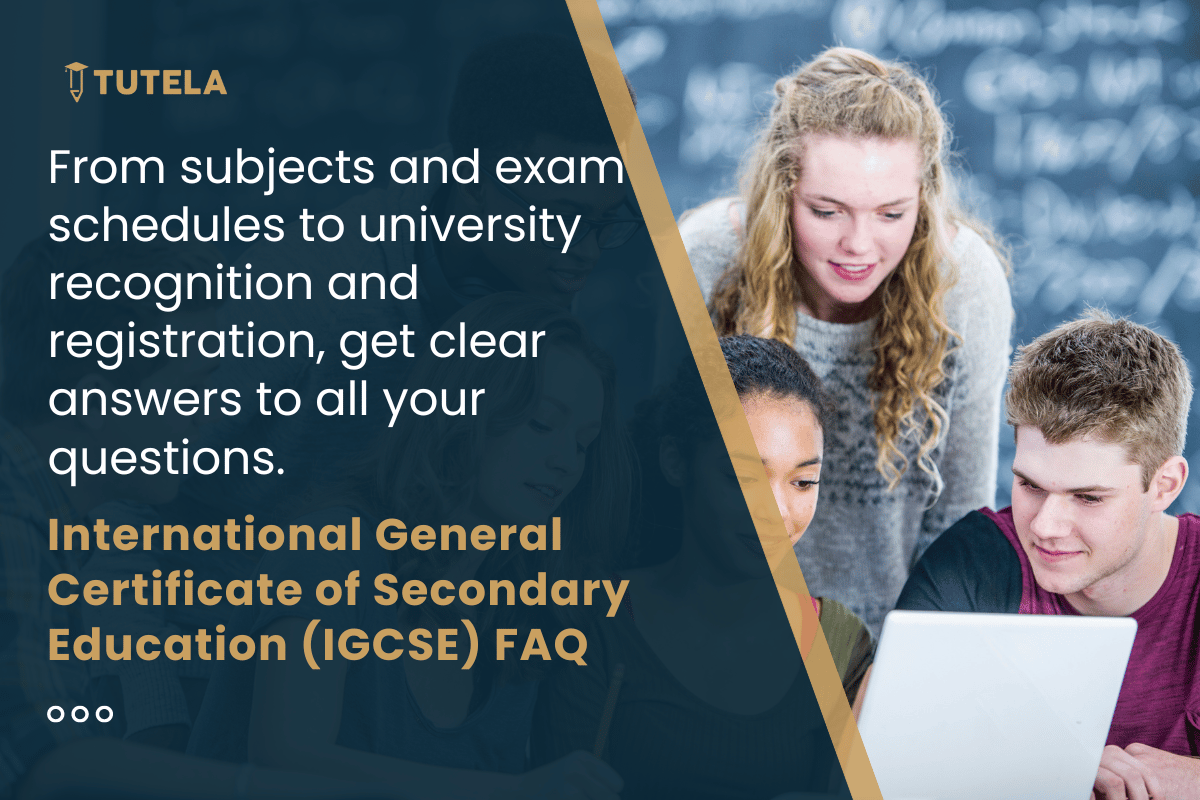
Updated on: 26th June, 2024
IGCSE board full form is International General Certificate of Secondary Education. IGCSE board is developed by the University of Cambridge International Examinations. With the help of this blog, we've compiled a list of frequently asked questions about the IGCSE curriculum. Whether you're a student, parent, or educator, these FAQs are designed to provide clear and concise answers, helping you make informed decisions about the IGCSE board and IGCSE syllabus.
Ans: Students can choose the IGCSE curriculum starting in Class 9. This program was developed by the University of Cambridge International Examinations. It is a two-year curriculum that is recognized globally. Even if you have completed your early schooling under a different board, you can join the IGCSE board in Class 9.
Ans: IGCSE board assessments typically include a combination of written exams, oral tests, coursework, and practical assessments, depending on the subject. The exams are graded from A* (highest) to G (lowest), with U indicating ungraded.
Ans: The IGCSE curriculum offers five subject groups:
Note: Students must take a minimum of 5 subjects and can take up to 14 subjects.
Ans: IGCSE exams are conducted only once a year, in March or May/June, depending on the school. They are retaken in November.
Ans: Approximately 500 schools across India follow the IGCSE curriculum. You can check out blog on IGCSE schools in India.
Ans: Your school will notify you about when and how you will receive your scores. You might need to collect your results from the school or access them online using login details provided by your school. If you lose your credentials, contact your exam officer.
Ans: You can retake the exam if you're unsatisfied with your score. You'll receive two statements of marks: one from the original attempt and one from the retake. Retaking the exam does not invalidate your previous results, and your final certificate won't mention the number of attempts. If your new score is lower, your original score remains valid.
Ans: No, dictionaries are not allowed in IGCSE language exams unless specified in the syllabus. Basic translation dictionaries are permitted in other exams.
Ans: IGCSE opens doors to both international and Indian education systems. You can continue with an international curriculum like IB or A levels or switch to Indian boards like CBSE, ICSE, or state boards. The choices are extensive, so research thoroughly to make an informed decision.
Ans: While there is no strict word count policy, it's best to stick to the suggested word limit. Writing more may indicate a lack of focus and can waste time needed for other questions. Conversely, writing too little may suggest insufficient understanding. Plan your answers to stay within the word limit.
For further details on the IGCSE curriculum click on the link. Know more about the IGCSE schools here.
TutelaPrep’s College Navigator allows students to search for colleges based on their preferred country and course. Not only that, it also provides valuable insights into each college’s specific admission requirements for those exams. Through College Navigator, you can even connect with alumni at your chosen colleges to get a firsthand feel for campus life and academics.
We hope this article helped you with the subject knowledge. Reach out to us by filling out our assistance form if you need any help with the preparations.